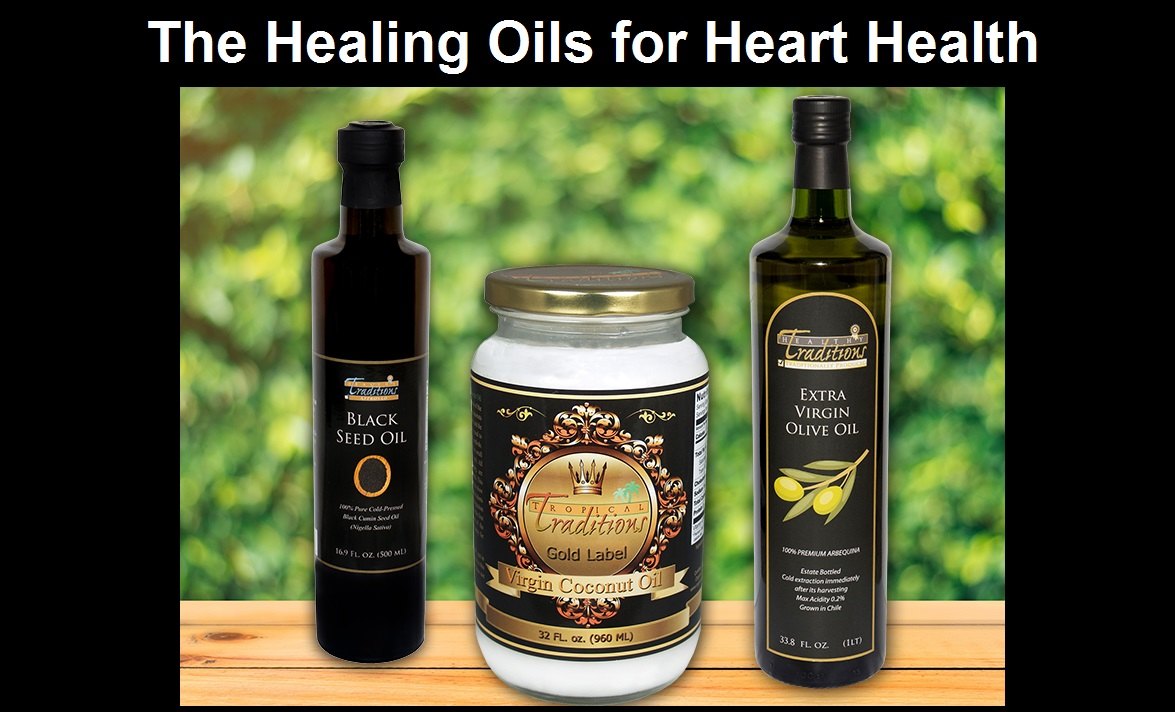
by Brian Shilhavy
Editor, Health Impact News
As more and more people in the United States are waking up to the fact that our federal health agencies, such as the FDA and CDC, are corrupt and serve the interests of Wall Street Billionaires and not the public, it is more important than ever to understand the corruption that also exists within the USDA (U.S. Department of Agriculture) and their years of bad nutritional advice that has demonized traditional, healthy fats and oils that have nourished populations for thousands of years, in favor of the newer “polyunsaturated” oils which are toxic, and dangerous to your health.
These polyunsaturated “edible oils” have only been in the human food chain since the “expeller-pressed” technology was developed during and following World War II that allowed the U.S. to start producing highly toxic and refined “edible” oils from corn and soybeans, two crops heavily subsidized by taxpayers that allows the U.S. to dominate world edible oil supplies.
It was in the 1970s that the “McGovern Report” put forward the nutritional dietary advice of a “low-fat” diet that harmed American’s health by condemning traditional fats and oils, but brought great profit to Wall Street investors as Americans switched over to hydrogenated toxic polyunsaturated oils derived from corn and soybeans.
They used a theory of heart disease commonly referred to as the “lipid theory” of heart disease that stated certain kind of fats, saturated fats, led to higher levels of cholesterol, and therefore higher risks for heart disease.
But even from the beginning and the origin of this theory that was stated in the McGovern Report, many scientists disagreed and called the theory bogus.
Today, the lipid theory of heart disease has been thoroughly debunked by real science, and yet official government policy on nutrition continues to support it, for political and economic reasons, but NOT health reasons.
To admit that they were wrong all these years on dietary oils, cholesterol, and heart disease, would be to admit that the $BILLIONS they earned during that time from popular cholesterol-lowering drugs, was earned fraudulently, and the biggest player in that industry was Pfizer, and their blockbuster drug Lipitor, the best-selling drug all-time before its patent ran out in 2011.
So with Pfizer’s newest killer drug, the COVID-19 vaccine, injuring the hearts of many people with myocarditis and pericarditis, especially among the younger age groups, it is more important than ever to understand just which dietary oils are actually healthy for the heart, and which ones are not.
I have been documenting and reporting on this topic of heart healthy, dietary oils, and cholesterol for over a decade, and you can research this topic for yourself at CoconutOil.com.
A new study just published last month (April, 2022) in Turkey once again validates the years of research showing just how heart-healthy certain fats and oils are, as they combined extra-virgin olive oil with virgin coconut oil to protect against “cardiotoxicity” which results from using toxic chemotherapy drugs, suggesting that these two traditional, healthy oils can also help heal hearts damaged by these toxic COVID-19 “vaccines.”
A Combination of Virgin Coconut Oil and Extra Virgin Olive Oil Elicits Superior Protection Against Doxorubicin Cardiotoxicity in Rats
The Turkish Journal of Pharmaceutical Sciences
Abstract:
Objectives: The use of the chemotherapy agent doxorubicin (DOX) is associated with free radical formation that may lead to cardiotoxicity. Virgin coconut oil (VCO) and extra virgin olive oil (EVOO) are plant-based oil that is rich in antioxidants. This study examined the protective effects of VCO and EVOO combination to reduce DOX acute cardiotoxicity in rats.
Materials and methods: Twenty-five male rats (180-200 g) were divided into the following groups: Group I as a control, group II was given DOX i.p. injection of 25 mg/kg body weight (b.w.), group III to V received peroral administration of either VCO, EVOO or VCO-EVOO (1:1) combination at a dose of 10 mL/kg b.w. for 6 days before receiving DOX i.p. injection. After 24 hours from DOX injection, blood samples and organs were collected. Cardiac biomarkers, such as serum glutamic-oxaloacetic transaminase (SGOT), lactate dehydrogenase (LDH), and creatine kinase-MB (CKMB) were analyzed followed by histopathological examination.
Results: The administration of EVOO alone was found to reduce the marked elevation of SGOT, LDH, and CKMB levels in DOX-treated rats (p<0.05), while VCO administration only significantly reduced LDH and CKMB levels. However, when both oils were used in combination, the protective effect was shown to be more powerful since all cardiac biomarker levels were maintained at near-normal levels (p<0.05). Histopathological analysis showed a significant improvement in the myocardial tissue structures after pre-treatment with VCO-EVOO combination.
Conclusion: The administration of VCO and EVOO in combination was superior to elicit protection against DOX-induced cardiotoxicity compared to their individual application in rats. (Source.)
Virgin Coconut Oil for Heart Health
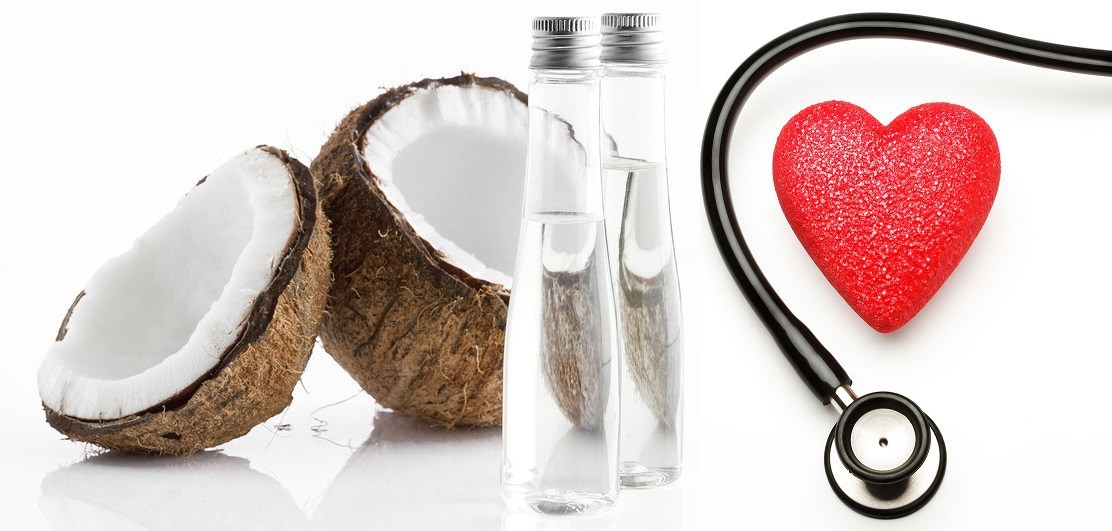
Studies showing the positive effects on heart health with virgin coconut oil are numerous, as we have documented over the years. And while studies can be funded and published to say whatever they want, which is why you will also find studies that attempt to condemn coconut oil, the fact is that coconut oil has been a staple as a dietary oil in tropical climates where coconuts grow for thousands of years, with no evidence of heart disease.
Here are some previous articles we have published that highlight the studies in the medical literature on the heart-health benefits of coconut oil:
Coconut Oil is Beneficial for Your Heart: Shining the Truth on Mainstream Media’s Negative Attacks Against Coconut Oil
Another Study Showing Virgin Coconut Oil Heart Healthy Contradicting AHA Propaganda
Study: Antioxidants in Virgin Coconut Oil Counteract Environmental Pollutants and Improve Cardiovascular Health
Black Seed Oil: The Remedy for Everything Except “Death”
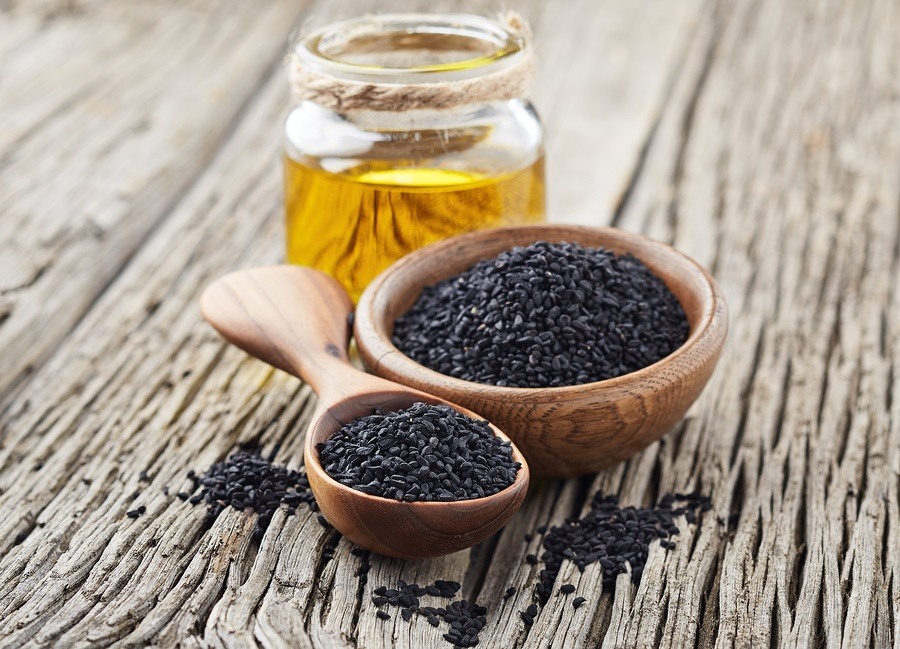
Relatively unknown in the West, but a common edible oil in Middle Eastern culture, is Black Cumin Seed Oil.
The peer-reviewed literature on the healing properties of black cumin seeds (Nigella Sativa) is truly astounding. This is from a 2013 article we republished by Sayer Ji of GreenMedInfo.com:
This humble, but immensely powerful seed, kills MRSA, heals the chemical weapon poisoned body, stimulates regeneration of the dying beta cells with the diabetic’s pancreas, and yet too few even know it exists.
The seeds of the annual flowering plant, Nigella Sativa, have been prized for their healing properties since time immemorial. While frequently referred to among English-speaking cultures as Roman coriander, black sesame, black cumin, black caraway and onion seed, it is known today primarily as black seed, which is at the very least an accurate description of its physical appearance.
The earliest record of its cultivation and use come from ancient Egypt. Black seed oil, in fact, was found in Egyptian pharoah Tutankhamun’s tomb, dating back to approximately 3,300 years ago. In Arabic cultures, black cumin is so known as Habbatul barakah, meaning the “seed of blessing.”
It is also believed that the Islamic prophet Mohammed said of it that it is “a remedy for all diseases except death.”
If you search for “black seed oil” at Health Impact News you will get more than 50 results.
Much of it has to do with cardiovascular health, and here are some recently published studies on the health benefits of black cumin seeds (Nigella sativa) on cardiovascular health.
Effects of thymoquinone against angiotensin II‑induced cardiac damage in apolipoprotein E‑deficient mice
International Journal of Molecular Medicine – 2022 May
Abstract
Herbal medicines have attracted much attention in recent years and are increasingly being used as alternatives to pharmaceutical medicines. Thymoquinone (TQ) is one of the most active ingredients in Nigella sativa seeds, which has several beneficial properties, including anti‑inflammatory, anti‑oxidative stress, anti‑hypertensive, anti‑apoptotic and free radical‑scavenging effects. Angiotensin II (Ang II) is involved in cardiovascular diseases. The present study aimed to investigate the potential protective effects of TQ against Ang II‑induced cardiac damage in apolipoprotein E‑deficient (ApoE‑/‑) mice. Briefly, 8‑week‑old male ApoE‑/‑ mice were randomly divided into four groups: Control, TQ, Ang II and Ang II + TQ groups. Osmotic minipumps, filled with either a saline vehicle or an Ang II solution (1,000 ng/kg/min), were implanted in ApoE‑/‑ mice for up to 4 weeks. The serum levels of high‑sensitivity C‑reactive protein (hs‑CRP) and histopathological alterations in heart tissue were assessed. In addition, the mRNA and protein expression levels of molecules associated with fibrosis (collagen I and III), oxidative stress and apoptosis (Nox4 and p53), and inflammation [tumor necrosis factor (TNF)‑α, interleukin (IL)‑1β and IL‑6] were analyzed by reverse transcription‑quantitative PCR (RT‑qPCR) and western blotting. In the in vitro study, H9c2 cells were incubated with different concentrations of Ang II, and the expression levels of pro‑inflammatory cytokines were evaluated using RT‑qPCR, whereas the protein expression levels of phosphorylated‑extracellular signal‑regulated kinase (p‑ERK) were determined using western blotting. Western blotting was also performed to detect the expression levels of collagen I, collagen III, Nox4 and p53 in H9c2 cells. The results revealed that TQ inhibited the Ang II‑induced increases in serum hs‑CRP levels. TQ also significantly inhibited the high levels of TNF‑α, IL‑1β, IL‑6, collagen I, collagen III, Nox4 and p53 in Ang II‑treated mice. Furthermore, TQ protected against Ang II‑induced cardiac damage by inhibiting inflammatory cell infiltration, proinflammatory cytokine expression, fibrosis, oxidative stress and apoptosis by suppressing activation of the p‑ERK signaling pathway. In conclusion, TQ could be considered a potential therapeutic agent for Ang II‑induced cardiac damage.
The effect of Nigella sativa oil on vascular dysfunction assessed by flow-mediated dilation and vascular-related biomarkers in subject with cardiovascular disease risk factors: A randomized controlled trial
Phytotherapy Research – 2022 Apr 12
Abstract
Cardiovascular diseases (CVD) are the leading causes of mortality worldwide. Flow-mediated dilation (FMD) is a marker of vascular function. Beneficial cardiometabolic effects of Nigella sativa (N. sativa) have been observed. We evaluated the effect of N. sativa oil on FMD, plasma nitrite, and nitrate (NOx) as nitric oxide (NO) metabolites, and inflammatory markers in subjects with CVD risk factors. Fifty participants were randomly assigned to either the N. sativa (two capsules of 500 mg N. sativa oil) or the placebo group (two capsules of 500 mg mineral oil), for 2 months. The brachial FMD, plasma NOx, vascular cellular adhesion molecule-1 (VCAM-1), and intracellular adhesion molecule-1 (ICAM-1) were measured. FMD and plasma NOx levels was significantly increased in the N. sativa group compared to the placebo group (changes: 2.97 ± 2.11% vs. 0.71 ± 3.19%, p < 0.001 for FMD and 4.73 ± 7.25 μmol/L vs. 0.99 ± 5.37 μmol/L, p = 0.036 for plasma NOx). However, there was no significant difference in ICAM-1 and VCAM-1 levels between groups. Therefore, N. sativa oil improves vascular NO and FMD in subjects with cardiovascular risk factors. However, more studies are warranted to confirm the beneficial impacts of the N. sativa oil on vascular inflammation.
Anti-Inflammatory Effects of Thymoquinone in Atherosclerosis: A Mini Review
Frontiers in Pharmacology 2021 Dec 15
Abstract
Atherosclerosis poses serious health problems and increases the risk of various cardiovascular diseases, including myocardial infarction, heart failure, ischemic stroke, and peripheral arterial disease. Atherosclerosis patients require long-term medications to prevent complications, some of which are costly and may result in unwanted adverse reactions. Natural products have emerged as potential sources of bioactive compounds that provide health benefits in cardiovascular diseases. Increased inflammation and vascular remodeling have been associated with atherosclerosis pathogenesis. The molecules involved in signaling pathways are considered valuable targets for new treatment approaches. Therefore, this review aimed to summarize the available evidence of the anti-inflammatory effects of thymoquinone, the major active compound isolated from Nigella sativa L., via inflammatory signaling pathways in atherosclerosis. Specifically, nuclear factor-κB and mitogen-activated protein kinase signaling pathways were considered. Furthermore, the potential toxic effects elicited by thymoquinone were addressed. These findings suggest a potential role of thymoquinone in managing atherosclerosis, and further studies are required to ascertain its effectiveness and safety profile.
Extra Virgin Olive Oil – The Heart-Healthy Mediterranean Diet
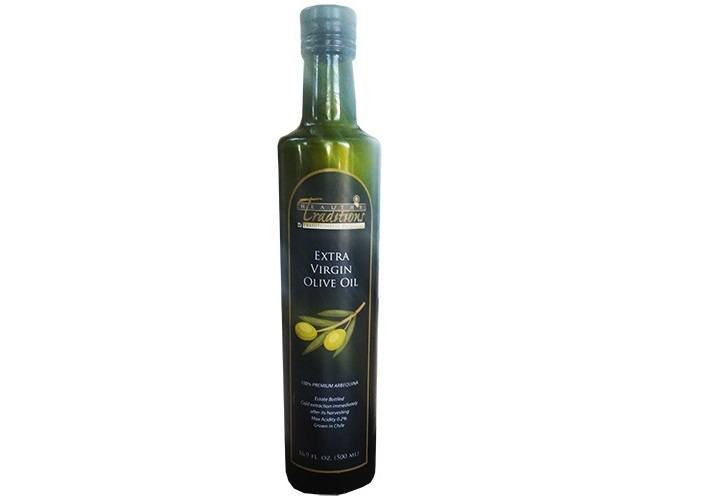
The heart benefits of extra virgin olive oil and the Mediterranean diet are well known and accepted in Western culture. (Study Finds Olive Oil Better than Medication for Heart Disease – is an example.)
So I won’t add a list here, since this information is readily available.
There is, however, one misconception promoted primarily in the alternative health media that olive oil is not meant to be heated, and should only be used raw, such as on salads.
Traditional cultures, however, have cooked and fried foods with olive oil for thousands of years, and being one of the healing oils, no one should be afraid to use it more, even in cooking. So we addressed this issue in this article:
Myth Buster: Olive Oil is One of the Safest Oils for Frying and Cooking
The other issue regarding olive oil is that many of the commodity food brokers that stock the grocery store chains today have oils labeled as “olive oil” that frequently are mixed with lesser grade or toxic edible oils, as there is a lot of fraud in this market. See:
Extra Virgin Olive Oil Fraud: A Guide to Purchasing Olive Oil
Toxic Modern Polyunsaturated Oils: Should They Ever Have Been Part of the Food Chain?
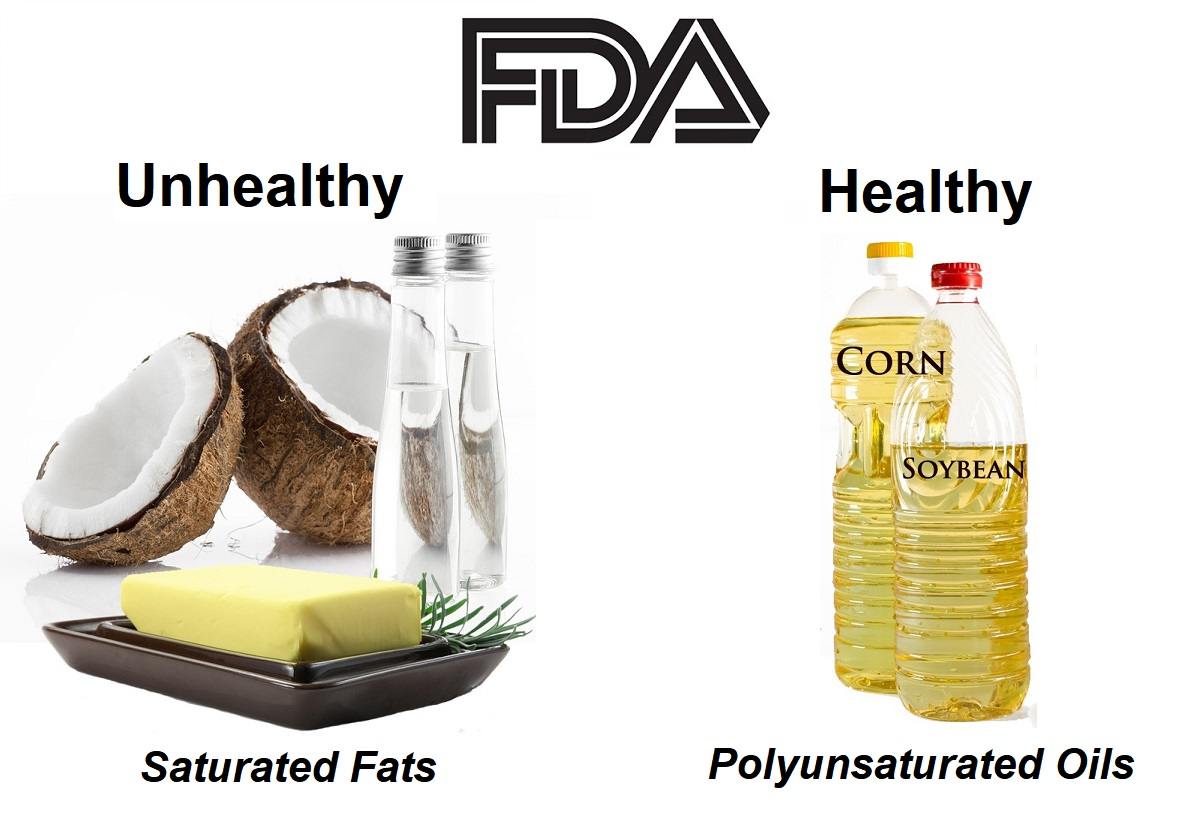
The U.S. Government’s position on dietary fats and oils is contradictory to the scientific truth and historical nutritional knowledge that has nourished populations for thousands of years.
Having identified the top healing oils for heart health now, it is important to recognize the toxic edible oils that destroy heart health: the highly refined polyunsaturated oils from corn and soybeans.
As is to be expected when the motives are to maximize profits of the Wall Street Billionaires at the expense of public health, many scandals have been uncovered over the years that allowed these toxic “vegetable oils” to become a mainstay of American nutrition. These oils are to be avoided at all costs.
This is, of course, the exact opposite of what U.S. Health Agencies such as the USDA and FDA tell the public.
Here is some of our previous coverage on this issue:
Study: Soybean Oil Linked to Neurological Conditions Like Autism, Alzheimer’s Disease, Anxiety, Depression
The Devastating Consequences of Replacing Butter with Margarine in Our Diet
Medical Scam: How Many Lives Have Cholesterol-lowering Drugs and Vegetable Oils Ruined?
See also:
Public Health SCANDAL! Sugar Industry Hid Science Linking Sugar to Heart Disease – Blamed Saturated Fats and Cholesterol Instead
And in my estimation, the absolute worst dietary oil of all, is Canola Oil, because it is promoted as a “healthy” oil.
But Canola oil is anything but “natural” or “healthy.” It is a genetically modified version of rapeseed oil, but because “rapeseed” oil is not a favorable marketing term, and because canola was developed in Canada, they renamed it “canola oil.”
Why Canola Oil is Not the Healthy Oil You’ve Been Led to Believe
Blowing the Lid Off the Claim that Canola Oil is “Healthy”
This is but a brief introduction to this topic of edible oils, and the scandals perpetrated for profit in this industry at the expense of public health. Please research more at CoconutOil.com.
Full disclosure: I earn my income from selling healthy foods, including healthy edible oils at Healthy Traditions.
Comment on this article at HealthImpactNews.com.



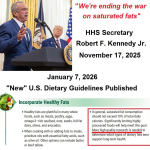 HHS Secretary Kennedy Breaks His Promise: "War on Saturated Fat" Kept in Tact with New U.S. Dietary Guidelines
HHS Secretary Kennedy Breaks His Promise: "War on Saturated Fat" Kept in Tact with New U.S. Dietary Guidelines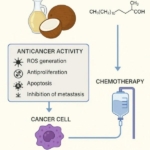 Research Continues to Show Virgin Coconut Oil's Effectiveness in Treating Cancer
Research Continues to Show Virgin Coconut Oil's Effectiveness in Treating Cancer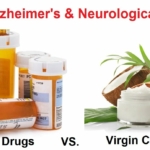 Coconut Oil Continues to Benefit Alzheimer's Patients over Drugs as Studies Continue for Neurological Benefits
Coconut Oil Continues to Benefit Alzheimer's Patients over Drugs as Studies Continue for Neurological Benefits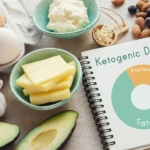 How the Simple High-Fat Low-Carb Ketogenic Diet Continues to Change People's Lives
How the Simple High-Fat Low-Carb Ketogenic Diet Continues to Change People's Lives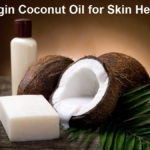 New Studies Continue to Show that Coconut Oil is the Best Oil for Treating Skin Conditions and Maintaining Healthy Skin and Teeth
New Studies Continue to Show that Coconut Oil is the Best Oil for Treating Skin Conditions and Maintaining Healthy Skin and Teeth